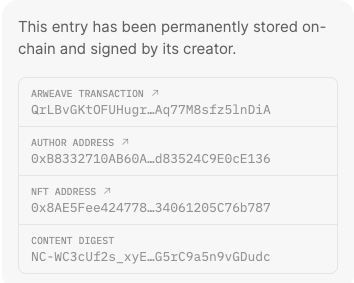Sign Everything
The advances in AI over the last year are mind-boggling. I attended a dinner this past week with USV portfolio founders and one who works in education told us that ChatGPT has effectively ended the essay as a way for teachers to assess student progress. It will be easier for a student to prompt ChatGPT to write the essay than to write it themselves.
It is not just language models that are making huge advances. AIs can produce incredible audio and video as well. I am certain that an AI can produce a podcast or video of me saying something I did not say and would not say. I haven’t seen it yet, but it is inevitable.
So what do we do about this world we are living in where content can be created by machines and ascribed to us?
I think we will need to sign everything to signify its validity. When I say sign, I am thinking cryptographically signed, like you sign a transaction in your web3 wallet.
I post my blogs at AVC.com and also at AVC.Mirror.xyz which is a web3 blogging platform that allows me to sign my posts and store them on-chain. This is an attestation at the end of last week’s blog post.

You can see that “author address” and click on it to see that it is one of the various web3 addresses I own/control. That signifies that it was me who posted the blog. It is also stored on-chain on the Arweave blockchain so that the content exists independently of the blogging platform. That is also important to me.
I think AI and Web3 are two sides of the same coin. As machines increasingly do the work that humans used to do, we will need tools to manage our identity and our humanity. Web3 is producing those tools and some of us are already using them to write, tweet/cast, make and collect art, and do a host of other things that machines can also do. Web3 will be the human place to do these things when machines start corrupting the traditional places we do/did these things.